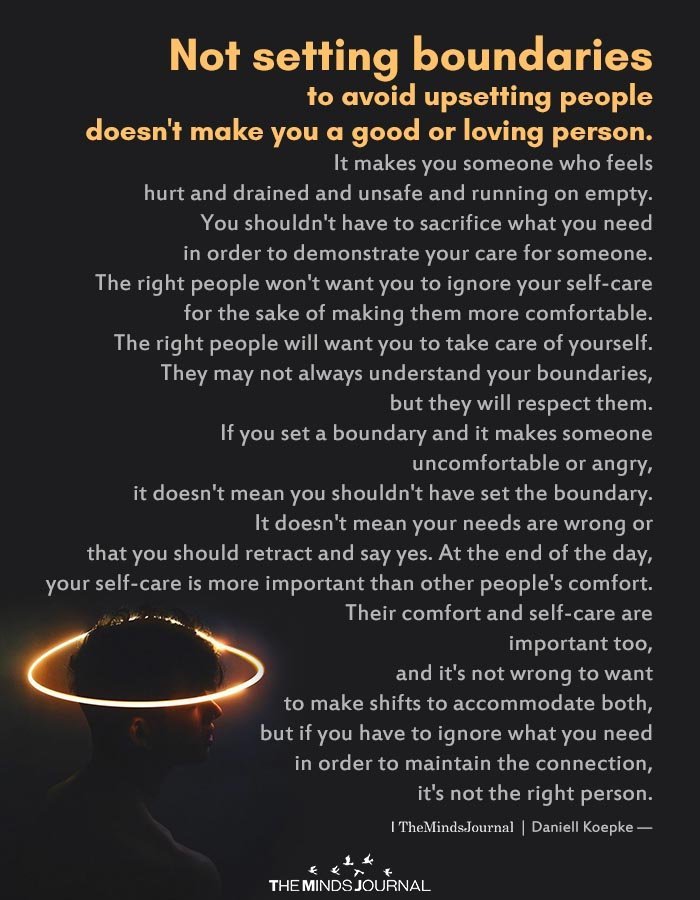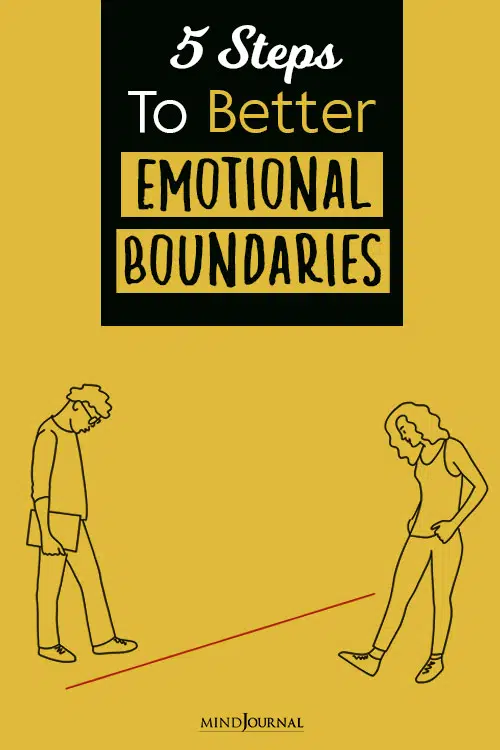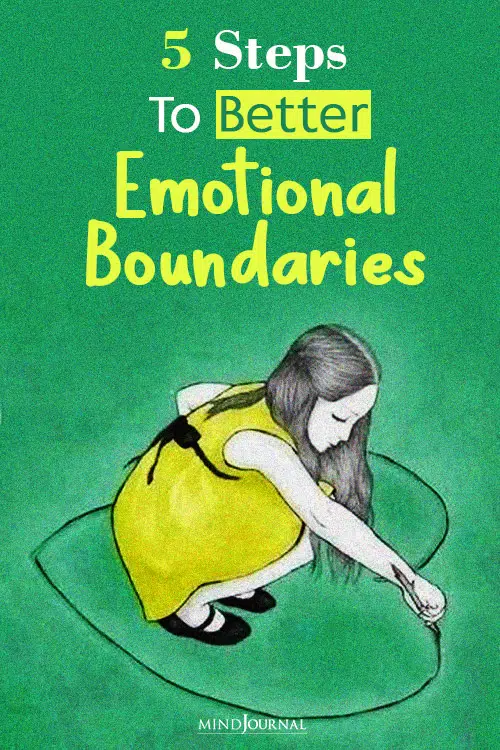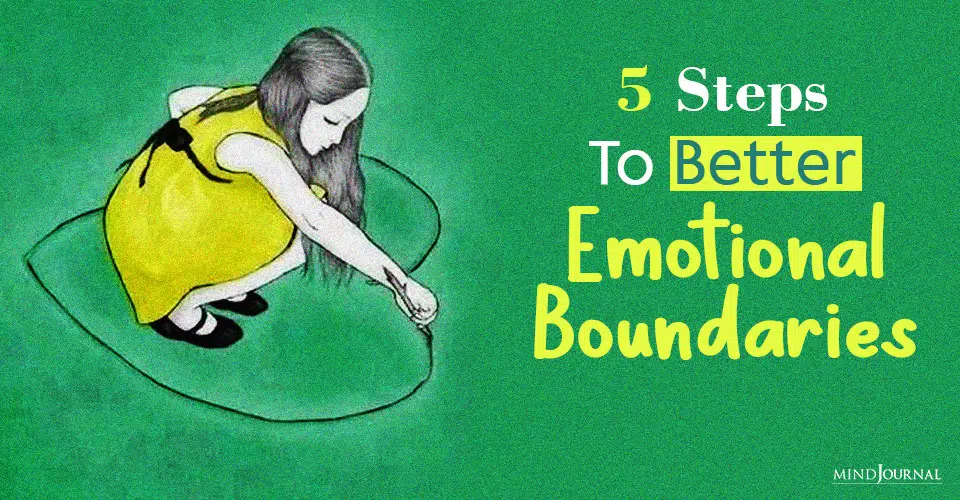Sometimes one of the best ways to help and support your loved ones deal with their pain and problems is by drawing emotional boundaries around yourself. Now, this might sound selfish or even straight-up wrong, but it’s actually necessary, for you and also them.
Do you ever feel like you’re taking on someone else’s problem as your own?
I was recently talking to a close friend about how she’s been doing. When asked this question, she responded with, “This last month has been absolute hell.” She proceeded to tell me about how two of her close friends were struggling with relapse and relationship issues, and how other friends have an immense amount of toxicity and drama in their lives right now.
I inquired, knowing what her answer would be, “So what does that have to do with you?”
She looked confused. Obviously, her friends being in a state of pain, discomfort, and instability has an impact on her. But for her life to feel unmanageable as a result of others’ pain is actually not a reflection of a healthy friendship. It’s a reflection of poor emotional boundaries.
Related: Personal Boundaries: 9 Core Boundaries To Live By
How Do We Cultivate Emotional Boundaries?
Step 1: Identify where you are lacking emotional boundaries.
Is it with a specific friend, family member, colleague, or all of the above? Is there a tendency to become more invested in people who are struggling with a specific issue that you have had experience with? What is the ultimate goal? What is the emotional trigger underneath the behavior?
In my personal experience, the emotional trigger has typically been that I think I know what’s best for another person. I start to take on their pain as my own, and I miss my opportunities for genuine empathy because I am thinking about how I can best help/save them.
Step 2: Identify what is blocking you from detaching.
One of my favorite quotes is by the poet Rumi: “Your task is not to seek for love, but merely to seek and find all the barriers within yourself that you have built against it.” Thus, the second step is to identify what it is internally that is blocking us from detaching or setting a boundary.
Do you feel “stuck”? Have you inadvertently signed up for a caretaking role in this relationship or in your friendships? Are you telling yourself that, “They’re my family—I can’t detach from them”?
It is incredibly empowering to remember that we do not need to sign up for any relationship (aside from some exceptions like employers, coworkers, etc.) that we don’t want to. If you are miserable at work, what is blocking you from looking for other employment? If you are in a one-sided friendship, what is blocking you from walking away? If you feel responsible for the wellbeing of others, what is blocking you from accepting that you don’t have that kind of power or responsibility?

Step 3: Do everything you can do break those barriers down.
I personally have found therapy incredibly helpful in this regard. Work through the barriers—don’t try to go around them. Journaling, intention setting, prayer, or conversing with healthy friends can all be helpful tools. We often cannot think our way out of our own emotional experiences; we need a sounding board.
Related: How Healthy Boundaries Can Prevent You From Taking on the World’s Pain
Step 4: Find grounding tools that help you maintain your boundaries.
I love energy work. I was once told to picture an opaque bubble around me when I’m dealing with someone who is in pain. I can show up for that person, be present and aware, and hold space for their experience, but their energy is not penetrating that bubble.
Whether it’s someone who is sad, angry, toxic, negative, grieving, or any other emotion on the human spectrum, I do not need to let it get into my bubble. I can be grounded, secure in myself, and present for that person.
But if I don’t have those boundaries in place, my relationships will undoubtedly become enmeshed and unhealthy.
Step 5: Remember the oxygen mask on an airplane.
Is it selfish to put the oxygen mask on yourself before putting it on another? No, it isn’t. It’s clearly displayed in every single airplane emergency guide. So why can’t we apply the same principle to our emotional natures?
Don’t ever forget: We have the capacity to give endlessly, so long as we are receiving endlessly as well. Where do you plant your roots? What does self-care look like for you?
After looking at these 5 steps, try this:
Next time you are struggling, ask yourself: Do you want someone to problem-solve and fix it for you? Or would you benefit much more from someone simply holding space for your experience and being there for you? When you were going through a difficult time, is there someone who saved you? Or were you able to choose the tools you were going to use and dig yourself out of your own hole?
We crave the semblance of control. Acknowledging that we are powerless over other people is terrifying. For me, it was exponentially more difficult than admitting I was powerless over my addiction to substances.
Related: 3 Biggest Myths About Boundaries and How Boundaries Brings Us Closer To Others
You may be wondering—if you’re not feeling pain for another person, aren’t you just detached and callous? Absolutely not.
You’ll find that you have much more energy to be useful to others and available to show up for people’s difficulties if you are saving some of that precious energy. If I pour everything I have into my patients, I wouldn’t actually be useful at all. I would be burnt out, exhausted, and rendered pretty useless in a work setting. How would I be able to then show up for my friends and family?
Caretaking leads to burnout. Empathy keeps us connected.
I hope this helps any of you who may be struggling with giving your all to everyone else.
Written By Hannah Rose Originally Appeared On PsychologyToday










Leave a Reply
You must be logged in to post a comment.